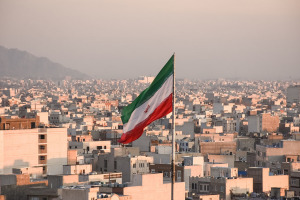Brazil Overtakes UK to Become World's Sixth Largest Economy
According to Brazilian Finance Minister Guido Mantega, Brazil has overtaken the United Kingdom to become the world's sixth-largest economy and will remain one of the fastest-growing nations in the coming years.
Official figures show that the Latin American nation's economy grew 2.7 percent last year, more than the 0.8 percent growth recorded by the U.K. New figures show that Brazil's GDP totaled $2.469 trillion in 2011, while the U.K. GDP was $2.420 trillion, according to the Centre for Economics and Business Research (CEBR).
"Brazil overtaking the U.K. is an indicator of the shift towards emerging markets in the global economy," said Tim Ohlenburg, senior economist at CEBR, according to The Telegraph.
"It is a bigger economy when measured at current market exchange rates," he added.
Despites the promising figures posted by Brazil, Mantega insisted that the most important thing is for Brazil to be among the most dynamic economies.
"It is not important to be the world's sixth-biggest economy, but to be among the most dynamic economies, and with sustainable growth," Brazil's Finance Minister, Guido Mantega, said on Tuesday.
The International Monetary Fund expects that Brazil will become the fifth-largest economy by 2016, taking the place of France.
Brazil has a population of about 190 million people, in contrast the U.K. has about 60 million people, and France has about 65 million.
Even if Brazil's economic growth is forecasted to slow from 7.5 to 3 percent in 2012, it will be faster than the 0.9 percent growth that economists expect from the United Kingdom, according to previous Bloomberg surveys.
Mantega recognizes that the per capita income of Brazilians is still low; a third of the British per capita figures, however, he believes that the situation will continue to improve.
"European countries have much higher per capita income than we do. We'll need 10, 20 years to reach European standards," Mantega claimed.
Economists credit the growth in the Brazilian economy to the 1990s, when several privatizations took place ending the state's dominance of commercial life. Then, China, a great consumer of soya beans, became a big customer and the United States began to invest more heavily in Brazil.




























